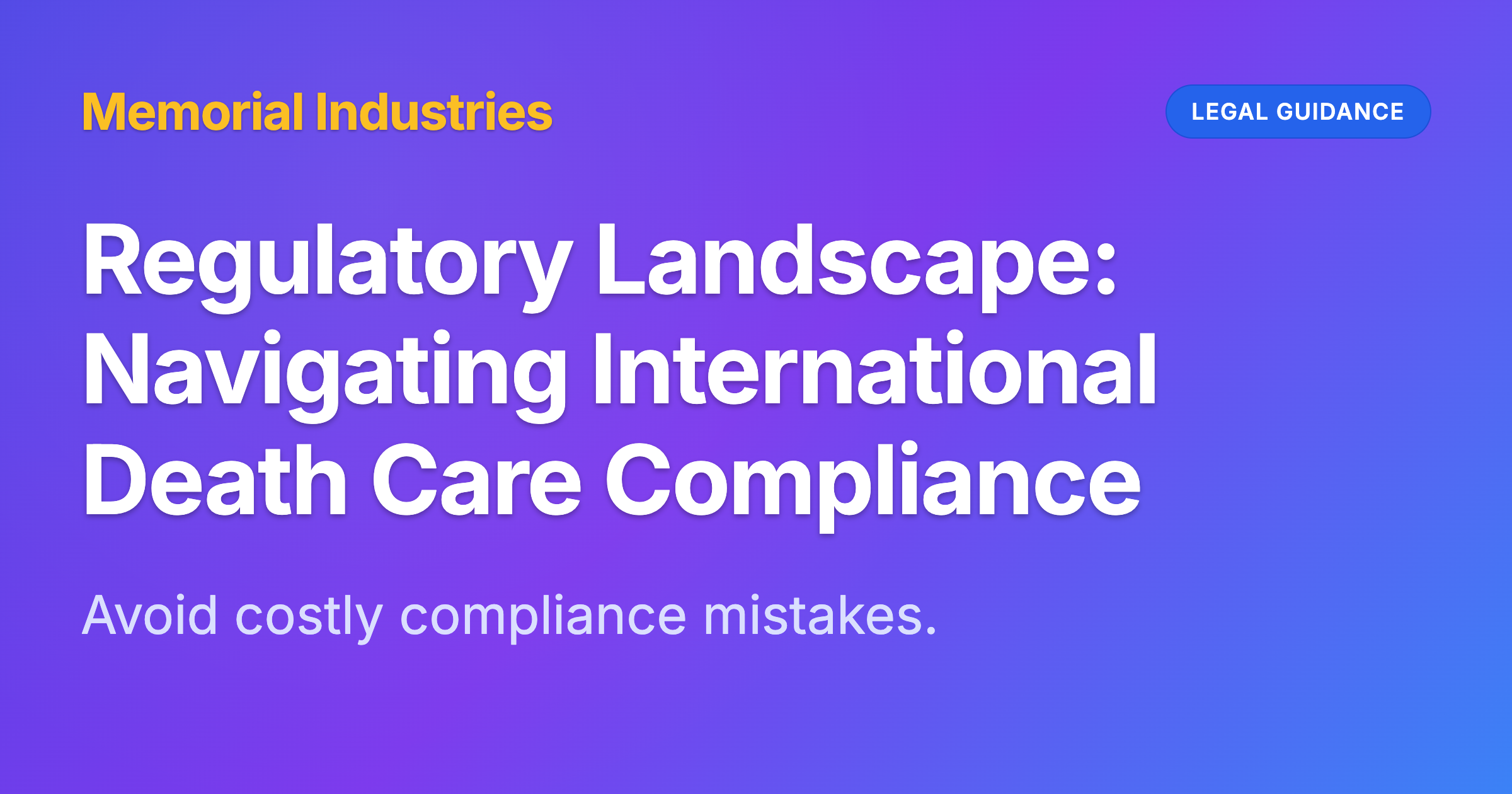
- Jan 15, 2025
- 10 min read
Regulatory Landscape: Navigating International Death Care Compliance
The regulatory landscape governing international death care services continues to evolve, with new compliance requirements emerging regularly. Understanding these complex regulations is crucial for ensuring smooth repatriation processes and avoiding costly delays.
Evolving International Standards
International organizations are working to standardize death care regulations across borders. The World Health Organization and International Air Transport Association have introduced new guidelines that affect how human remains are prepared, documented, and transported internationally.
These evolving standards aim to balance public health concerns with cultural sensitivity and family needs, but they also create new challenges for service providers operating across multiple jurisdictions.
Digital Documentation Requirements
Many countries are transitioning to digital-first documentation systems, requiring electronic certificates, digital signatures, and online verification processes. This shift promises greater efficiency but also demands new technical capabilities from service providers.
The challenge lies in ensuring compatibility between different national systems while maintaining the security and authenticity of critical documents.
Environmental Regulations Impact
Growing environmental concerns are driving new regulations around embalming chemicals, shipping materials, and carbon footprint reporting. Some countries now require environmental impact assessments for certain types of international transport.
These regulations are pushing the industry toward more sustainable practices, including biodegradable shipping materials and environmentally friendly preservation methods.
Health Security Measures
Post-pandemic health security measures have introduced additional layers of complexity to international repatriation. New health screening requirements, quarantine procedures, and sanitization protocols vary significantly between countries.
Service providers must now navigate these health security requirements while ensuring timely and respectful transport of human remains.
Data Privacy and Protection
International data privacy regulations like GDPR affect how personal information is collected, stored, and shared during repatriation processes. Compliance requires sophisticated data management systems and clear privacy protocols.
The challenge is particularly acute when dealing with sensitive family information that must be shared across multiple international jurisdictions with different privacy requirements.
Future Regulatory Trends
Emerging trends suggest increased automation in regulatory compliance, with AI systems helping to verify documentation and ensure adherence to multiple international standards simultaneously.
However, the human element remains crucial for navigating cultural sensitivities and providing the personal attention that families need during difficult times.
Industry Adaptation Strategies
Successful service providers are investing in technology platforms that can adapt to changing regulations while maintaining the personal touch that families expect. This includes automated compliance checking systems paired with experienced human oversight.
The key to navigating this complex regulatory environment is maintaining flexibility while ensuring consistent quality and compassionate service delivery across all international markets.

Related articles

How to Bring a Body Home: Step-by-Step Guide
Jan 29, 2025

What to Do When a U.S. Citizen Dies Abroad: Your Complete Crisis Response Guide
Sep 8, 2025

Should You Handle Repatriation Yourself? A Family's Critical Decision Guide
Aug 19, 2025

What to Do If a Loved One Dies Overseas: A Step-by-Step Guide
Jan 30, 2025

International Funeral Shipping Costs: Complete Breakdown
Jan 28, 2025

The First 48 Hours After a Death Abroad: What to Expect
Jan 27, 2025